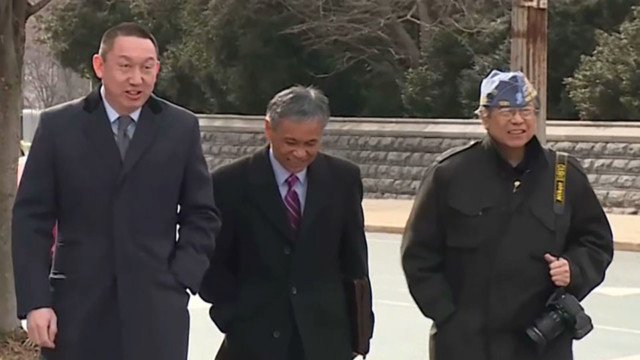They suffered humiliating discrimination, violence. But, despite being born and raised in the United States, many Chinese Americans were banned from citizenship.
But 20,000 of them nevertheless fought for the U.S. during the Second World War. And yet their valor has never been officially recognized by the U.S. government.
Now a campaign is underway to change that.
CGTN’s Owen Fairclough reports.
They’re just a handful of campaigners, but they’re determined to honor an entire generation of Chinese-Americans Second World War veterans who risk being forgotten.
Taking a break between multiple meetings with lawmakers on a chilly Capitol Hill, Corky Lee, a photographer whose father served in the war said: “The World War Two veterans have always been considered America’s ‘greatest generation,’ but it’s basically white.”
Chinese-American troops served with other Asian minorities all over the world, including Japan and the Philippines.
In recent years, Filipino and Japanese American veterans received a Congressional Gold Medal—the highest civilian honor in the US.
But not Chinese-Americans, who endured a history of civil rights before the war. Nearly half of those who signed up were undocumented migrants who’d been marginalized under so-called “exclusion laws dating back to the late 19th Century.”
William Chen was the first Chinese-American to become a two-star Major General in the U.S. army.
His father was a World War Two veteran who supported a famous American fighter squadron in China called the Flying Tigers.
“They became known and recognized by the American people and that helped open up opportunities for all Chinese-Americans and Asian Americans after World War Two,” Chen said.
Ultimately, these campaigners hope their efforts will change perceptions about Asian Americans and answer key questions about their ancestors.
“I got my U.S. citizenship when I was 11 years old and to this day I often get asked if was in the Philippine Army,” Tony Taguba, also a retired U.S. Army Major-General, said.
“The one thing I never got to ask my father – because I guess I was never mature enough to ask him was – ‘Why is it that you couldn’t become a citizen, you couldn’t vote, you couldn’t testify in court. Why would you fight for a country, and possibly die, you know, fighting for a country that didn’t see you as a possible citizen or even a human being?” Corky Lee said.
And their campaign to honor Chinese-Americans war veterans in their lifetime is a race against time. It’s estimated only up to a thousand of them are still alive.
 CGTN America
CGTN America

